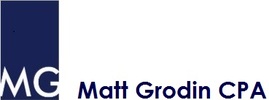|
School is expensive. Thankfully, there are a few deductions and credits to help offset these costs for schooling at some levels.
There's help for preschool for working parents, donations to education foundations, college, and education for disabled students. There isn't a lot of help directly for private elementary through high school education, but some planning can provide a bit of help. Presumably, Congress wants you to rely on public schools. Preschool: If both parents work (or a single parent works), preschool can be treated as dependent day care. See my post below related to dependent day care. Take advantage of dependent care pre-tax programs through your work if available, as well as the dependent care credit. College: You can claim up to 4 years of the American Opportunity Credit per student, worth $2500 per year. Parents may claim it for dependent students - but there is a phaseout and it caps at $180,000 per year. If you are beyond year 4 or in grad school, the Lifetime Learning credit is available to you. This is worth $2000 per year, but there is a lower phaseout, capping at $124,000. Only tuition and fees are used for the Lifetime Learning Credit, but books and other expenses (not room and board) are available for the American Opportunity Credit. 529 Plans may be the best tax-advantaged way to save for college. They work similar to Roth IRAs - there is no tax break for putting money into a 529, but you pay no tax on the earnings as long as the money is used for college. There is a provision to gift 5 years worth of 529 contributions at once. Elementary through High School My daughter is heading off to a public elementary school. Unfortunately, our school system is not funded well enough to provide some of the basics, like PE, music, or art. A foundation has been set up to solicit donations to cover these programs. This foundation is a 501(c)3 nonprofit, therefore my donations to the foundation are deductible. Special needs education is deductible if it meets certain tests. The primary purpose of attending the school must be to alleviate the handicap through the school's resources. There are a few other requirements as well. Lodging, meals, transportation, and tuition would all fall as a medical deduction (subject to either a 10% or 7.5% AGI floor). Private education is generally not deductible. There are a few tax-advantaged opportunities which may indirectly help. If a person other than a parent is funding the tuition, that person can pay the tuition directly to the school and avoid gift tax limits. UTMA accounts have some benefit for funding private education as well. UTMA accounts are simply accounts in your child's name, but the person setting up the account can control the money until age 18 (in California). There's no specific tax break to UTMA accounts, but they take advantage of the fact that the first $1000 in unearned income per year is tax-free. So, if you were going to invest an amount which will earn less than 1000 per year, you would get some savings with an UTMA. This of course may be a drop in the bucket for private education costs. As always, email me if you have any questions on these topics.
0 Comments
Leave a Reply. |
Author
Archives
December 2015
Categories |
T 650.342.4394


 RSS Feed
RSS Feed